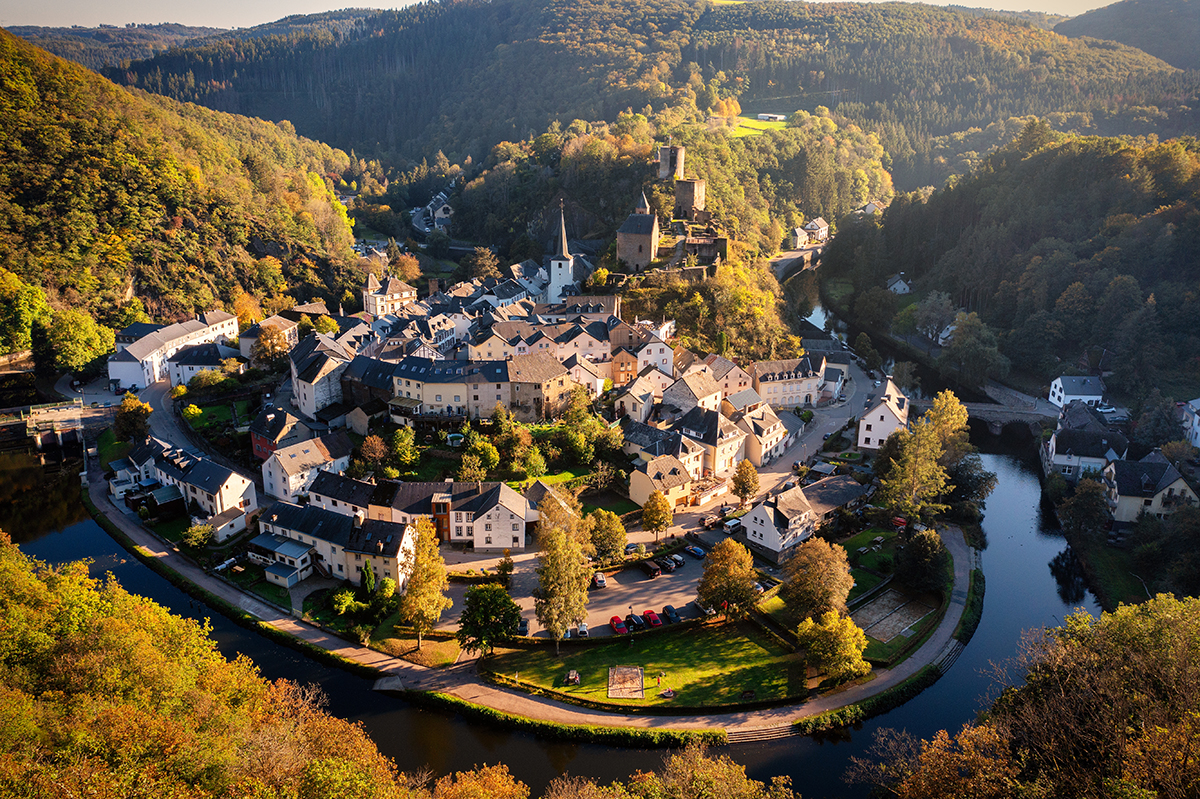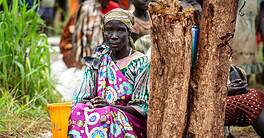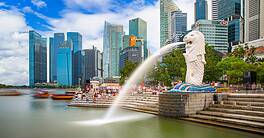What does it mean for a nation to be rich or poor at a time of global pandemic, high inflation and geopolitical tensions? GDP per capita adjusted for relative purchasing power gives us an idea, albeit an imperfect one.
Would you rather be rich in a poor country or poor in a rich one? Measuring the wealth of nations is not that easy (spoiler: it is not just about gross domestic product, or GDP). Determining how rich you are depends to a large degree on how rich and poor countries are defined.
If we simply consider a nation’s gross domestic product—the sum of all goods and services produced by a country during one year—then we would have to conclude that the richest nations are exactly the ones with the largest GDP: United States, China, Japan, Germany. But how could the economies, for example, of Singapore or Luxembourg ever match that of such powerhouses when they are no more than small dots on the world map?
Another problem with GDP is that it does not measure income inequality, that is, how a country’s riches are distributed among the population. That is why a more accurate representation of people’s living conditions begins with dividing a nation’s GDP by the number of people that live there: per capita GDP and its growth rate tell us much more about the social wealth potentially available to each person and whether this wealth is either increasing or decreasing over time.
However, using per capita GDP still poses a problem: the very same income can buy very little in some countries and go much further in others where basic necessities—food, clothing, shelter, or healthcare—cost far less. To gauge how wealthy a country’s citizens are it is necessary to understand how much they can buy. That is why, when comparing per capita GDP across countries, GDP should be adjusted for purchasing power parity, which helps us take into account the inflation rates and the price of goods and services in each given place.
When considering whether it is better to be rich in a poor country or poor in a rich one, the best chance of enjoying a superior standard of living is to reside in a richer nation no matter where a person falls on the income distribution scale. Then again, wealth for some without a good measure of equality for everyone is problematic, to say the least. The coronavirus pandemic proved it most strikingly. Low-income workers, often migrants, living in some very wealthy nations suddenly found themselves unemployed, homeless and stranded without much of a safety net. Many less affluent nations, in the meantime, bent over backwards to take care of all those in need during the crisis.
Further, the quality and availability of healthcare often go hand in hand with the quality and availability of education services, social security, housing assistance and other components of the social infrastructure. A country might boast a high GDP or a high GDP per capita but, if such services are inadequate or inaccessible to a significant portion of the population, these citizens will feel poor, regardless of the economic indicators might suggest.
Additionally, when it comes to inflation, because energy and food are essential goods with few substitutes higher prices are particularly painful for low-income households. It is easier for families to cut down or eliminate spending on electronics, clothing or entertainment when prices surge, but when it comes to food, heating or transportation—crucial to both live and earn a living—this becomes much more difficult. As a result, an inflationary scenario can often pose a threat to economic and social stability.
This is why, in the long run, it is better not only to be rich but to be egalitarian as well. Too much economic inequality stifles growth for all, political instability is more likely, healthcare care costs and mortality rates are higher, and so are crime and corruption rates. Being rich in a poor country also has costs.
World’s 100 Richest Countries 2024
| Rank | Country/Territory | GDP-PPP per capita ($) |
| 1 | 🇱🇺Luxembourg | 143,743 |
| 2 | 🇲🇴Macao SAR | 134,141 |
| 3 | 🇮🇪Ireland | 133,895 |
| 4 | 🇸🇬Singapore | 133,737 |
| 5 | 🇶🇦Qatar | 112,283 |
| 6 | 🇦🇪United Arab Emirates | 96,846 |
| 7 | 🇨🇭Switzerland | 91,932 |
| 8 | 🇸🇲San Marino | 86,989 |
| 9 | 🇺🇸United States | 85,373 |
| 10 | 🇳🇴Norway | 82,832 |
| 11 | 🇬🇾Guyana | 80,137 |
| 12 | 🇩🇰Denmark | 77,641 |
| 13 | 🇧🇳Brunei Darussalam | 77,534 |
| 14 | 🇹🇼Taiwan | 76,858 |
| 15 | 🇭🇰Hong Kong SAR | 75,128 |
| 16 | 🇳🇱Netherlands | 74,158 |
| 17 | 🇮🇸Iceland | 73,784 |
| 18 | 🇸🇦Saudi Arabia | 70,333 |
| 19 | 🇦🇹Austria | 69,460 |
| 20 | 🇸🇪Sweden | 69,177 |
| 21 | 🇦🇩Andorra | 69,146 |
| 22 | 🇧🇪Belgium | 68,079 |
| 23 | 🇲🇹Malta | 67,682 |
| 24 | 🇩🇪Germany | 67,245 |
| 25 | 🇦🇺Australia | 66,627 |
| 26 | 🇧🇭Bahrain | 62,671 |
| 27 | 🇫🇮Finland | 60,851 |
| 28 | 🇨🇦Canada | 60,495 |
| 29 | 🇫🇷France | 60,339 |
| 30 | 🇰🇷South Korea | 59,330 |
| 31 | 🇬🇧United Kingdom | 58,880 |
| 32 | 🇨🇾Cyprus | 58,733 |
| 33 | 🇮🇹Italy | 56,905 |
| 34 | 🇮🇱Israel | 55,533 |
| 35 | 🇦🇼Aruba | 54,716 |
| 36 | 🇯🇵Japan | 54,184 |
| 37 | 🇳🇿New Zealand | 53,797 |
| 38 | 🇸🇮Slovenia | 53,287 |
| 39 | 🇰🇼Kuwait | 52,274 |
| 40 | 🇪🇸Spain | 52,012 |
| 41 | 🇱🇹Lithuania | 50,600 |
| 42 | 🇨🇿Czech Republic | 50,475 |
| 43 | 🇵🇱Poland | 49,060 |
| 44 | 🇵🇹Portugal | 47,070 |
| 45 | 🇧🇸The Bahamas | 46,524 |
| 46 | 🇭🇷Croatia | 45,702 |
| 47 | 🇭🇺Hungary | 45,692 |
| 48 | 🇪🇪Estonia | 45,122 |
| 49 | 🇵🇦Panama | 44,797 |
| 50 | 🇸🇰Slovak Republic | 44,081 |
| 51 | 🇹🇷Türkiye | 43,921 |
| 52 | 🇵🇷Puerto Rico | 43,219 |
| 53 | 🇷🇴Romania | 43,179 |
| 54 | 🇸🇨Seychelles | 43,151 |
| 55 | 🇱🇻Latvia | 41,730 |
| 56 | 🇬🇷Greece | 41,188 |
| 57 | 🇴🇲Oman | 39,859 |
| 58 | 🇲🇾Malaysia | 39,030 |
| 59 | 🇰🇳St. Kitts and Nevis | 38,870 |
| 60 | 🇷🇺Russia | 38,292 |
| 61 | 🇲🇻Maldives | 37,433 |
| 62 | 🇧🇬Bulgaria | 35,963 |
| 63 | 🇰🇿Kazakhstan | 34,534 |
| 64 | 🇹🇹Trinidad and Tobago | 32,685 |
| 65 | 🇲🇺Mauritius | 32,094 |
| 66 | 🇨🇱Chile | 31,005 |
| 67 | 🇺🇾Uruguay | 30,170 |
| 68 | 🇲🇪Montenegro | 29,696 |
| 69 | 🇨🇷Costa Rica | 28,558 |
| 70 | 🇷🇸Serbia | 27,985 |
| 71 | 🇦🇬Antigua and Barbuda | 27,309 |
| 72 | 🇩🇴Dominican Republic | 27,120 |
| 73 | 🇱🇾Libya | 26,456 |
| 74 | 🇦🇷Argentina | 26,390 |
| 75 | 🇲🇽Mexico | 25,963 |
| 76 | 🇧🇾Belarus | 25,685 |
| 77 | 🇬🇪Georgia | 25,248 |
| 78 | 🇨🇳China | 25,015 |
| 79 | 🇹🇭Thailand | 23,401 |
| 80 | 🇲🇰North Macedonia | 22,249 |
| 81 | 🇬🇩Grenada | 21,799 |
| 82 | 🇦🇲Armenia | 21,746 |
| 83 | 🇮🇷Islamic Republic of Iran | 21,220 |
| 84 | 🇧🇷Brazil | 20,809 |
| 85 | 🇦🇱Albania | 20,632 |
| 86 | 🇧🇦Bosnia and Herzegovina | 20,623 |
| 87 | 🇧🇧Barbados | 20,592 |
| 88 | 🇧🇼Botswana | 20,097 |
| 89 | 🇨🇴Colombia | 19,770 |
| 90 | 🇹🇲Turkmenistan | 19,729 |
| 91 | 🇱🇨St. Lucia | 19,718 |
| 92 | 🇬🇦Gabon | 19,452 |
| 93 | 🇦🇿Azerbaijan | 19,328 |
| 94 | 🇻🇨St. Vincent and the Grenadines | 19,196 |
| 95 | 🇸🇷Suriname | 18,928 |
| 96 | 🇬🇶Equatorial Guinea | 18,378 |
| 97 | 🇲🇩Moldova | 17,902 |
| 98 | 🇪🇬Egypt | 17,614 |
| 99 | 🇫🇯Fiji | 17,403 |
| 100 | 🇵🇼Palau | 17,381 |
Source: International Monetary Fund, World Economic Outlook April 2024. Values are expressed in current international dollars, reflecting the corresponding exchange rates and PPP adjustments.




